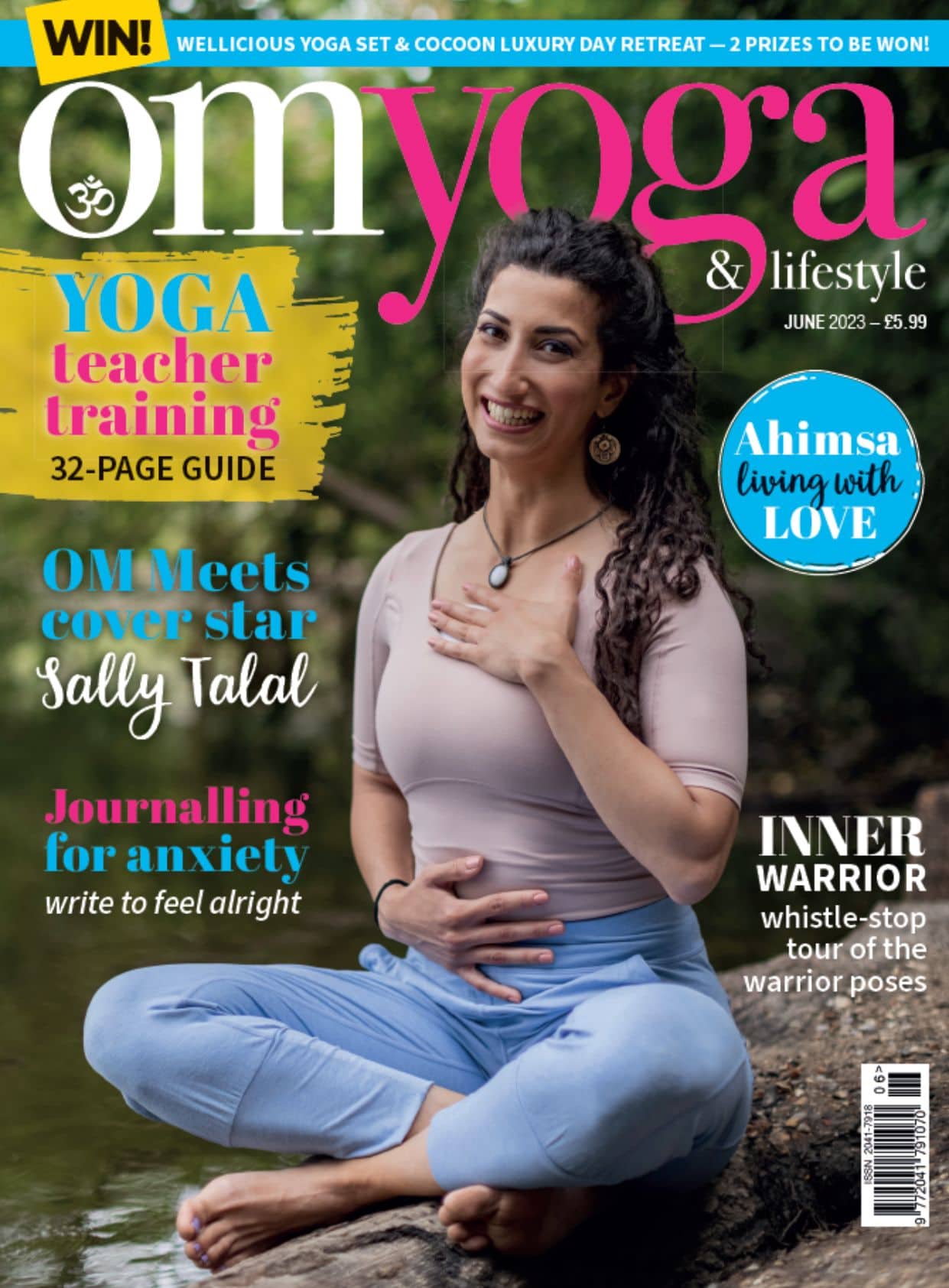
Mantra for mums
The power of mantra in parenthood. By Sarah Ezrin
Reading time: 6 minutes
When an important work commitment conflicted with my eldest son's birthday, I got to do some of the most advanced yoga I have ever done. You may be thinking I did a fancy pose, but no movement was actually involved. I used mantra to adjust my mind from self-critical thoughts and guilt, towards thoughts of self-acceptance and kindness.
This wasn't the first time in my life that my career conflicted with my family. I have been trying to manage my work-life balance since before I even started having kids. I love what I do, so there have been many 'Sophie's choice' (or more accurately 'Sarah's choice') moments throughout the years, where a big opportunity comes up on an important day for someone that I love.
Some choices are clearer to make than others. Like, turning down travel that would take me away from home on someone's birthday, but if a big opportunity arises for an hour or two, I often say 'yes'.
I say 'yes', because if I want to be fully present for all the celebrations likely to come that day, weekend, or sometimes even week, I need to do something that helps me feel whole and full first. For me that is my work.
So, I said 'yes' to a speaking opportunity that took place on my son's birthday. But the second I did, the thought, "You're so selfish" started repeating in my head. For weeks, it was like a song stuck on repeat: "You're so selfish. You're so selfish."
This was a new loop. It happens on a smaller scale almost every time I make a choice for myself. When I choose to do asana practice instead of chilling on a Sunday morning: "you're so selfish." When I choose to have dinner with friends instead of being there for bedtime: "you're so selfish." And when I choose to go to the loo unaccompanied: "you're so selfish!"
Even though I know in my gut and my heart that my motivation to take time for myself is ultimately so I can be more present with my family, my mind tends to be slower at accepting that truth. One cool thing about yoga is that it is as much of a practice of working on our mind and thoughts rather than just shapes we make with our body.
With the same discipline that I show up to my mat every day to breathe and move, I began to work on shifting my thoughts from "you're so selfish" to "you're doing what you need to do to support your family."
Every time "you're so selfish" arose, I would take a deep breath and repeat the reframed mantra: "you're doing what you need to do to support your family." There were many days where it felt like I spent the entire day reframing my thoughts. But, in time, I was able to shift away from the narrative that I was being selfish and truly accept and appreciate that taking time for myself is ultimately for my family.
When my son's birthday arrived, my new mantra empowered me to show up for my speaking opportunity without guilt, which in turn, enabled me to show up wholeheartedly for my family later on that day.
Mantra madness
The words we repeat have power, even if they are never spoken aloud. In the yoga tradition, repeated phrases meant to aid in meditation and prayer are called mantra. This comes from two Sanskrit words, manas- meaning 'mind', and -trava, meaning 'to liberate'. The Sanskrit language is sometimes called the Language of the Gods, as it is believed to have been created by Hindu god Brahma and then passed directly to rishis, spiritual sages. As such, many mantras are thought to be direct lines to the divine.
In the Western world, the term mantra has come to colloquially mean a repeated truism or statement. They are the things we say to ourselves over and over again. As such, they are not always positive. All languages are vibrational and therefore any words we say or think hold power.
Luckily, through awareness and dedicated practice, we can consciously shift away from mantras that might be harmful toward ones that are sacred or simply more kind.
The ancient texts, such as the Vedas offer many reasons to practice mantra such as a way to cleanse and still the mind. Modern science and brain imaging have given us ample evidence that this practice is beneficial as well. It is an essential practice for practitioners and especially, practitioner parents.
Here are four science-backed, and parent-specific, benefits to using mantras:
Reduces anxiety: Despite mantra practice being around for millennia, research is somewhat nascent and limited, though a 2022 systemic review found promising results. Patients who practiced mantra showed a significant reduction of anxiety symptoms across a wide variety of studies.
Lowers stress: The same review also found evidence of stress reduction across studies, including in patients with a history of post-traumatic stress. This makes mantra a promising, non-invasive, low cost alternative therapy treatment for people in high stress situations, which parents know about very intimately!
Improved memory: A 2016 study looking at the brains of professional Sanskrit Vedic Pandits found significant structural differences from the brains of non-meditators, including more grey matter in the right hippocampus, which is related to memory. This is especially promising information people with memory challenges – think 'baby brain' – which many parents face as they are tasked with thinking for the entire family and not just themselves.
May improve sleep: Kirtan, which is a call and response style chanting practice, was recently found to improve sleep and other cognitive functioning including mood and quality of life. This study found that even just listening to the chants had positive effects.
As a parent, I will happily take one of each of those benefits please!
Mantra is not only highly beneficial, it's a very versatile practice. Unlike asana, which requires space for you to move your body, all you need is your brain. You don't even need to open your mouth or be in a quiet setting. You can repeat mantras silently wherever and whenever – meaning young parents needn't worry about waking up their baby. The simplest mantra you might start with is the sacred syllable, Aum. Aum is considered a pranava, an omnipresent sound that is all around us. Repeating it is like taking a swim in the cosmic sea. It's great for when you're feeling overwhelmed, like how many of us feel most of the time in parenthood.
Sarah Ezrin is an author, yoga educator and mama based in the San Francisco Bay Area. Her debut book 'The Yoga of Parenting' (Penguin Random House-Shambhala) is out this month. Connect with her on Instagram @sarahezrinyoga and TikTok @sarahezrin. Photos: emiliebers.com/@emilie.bers





